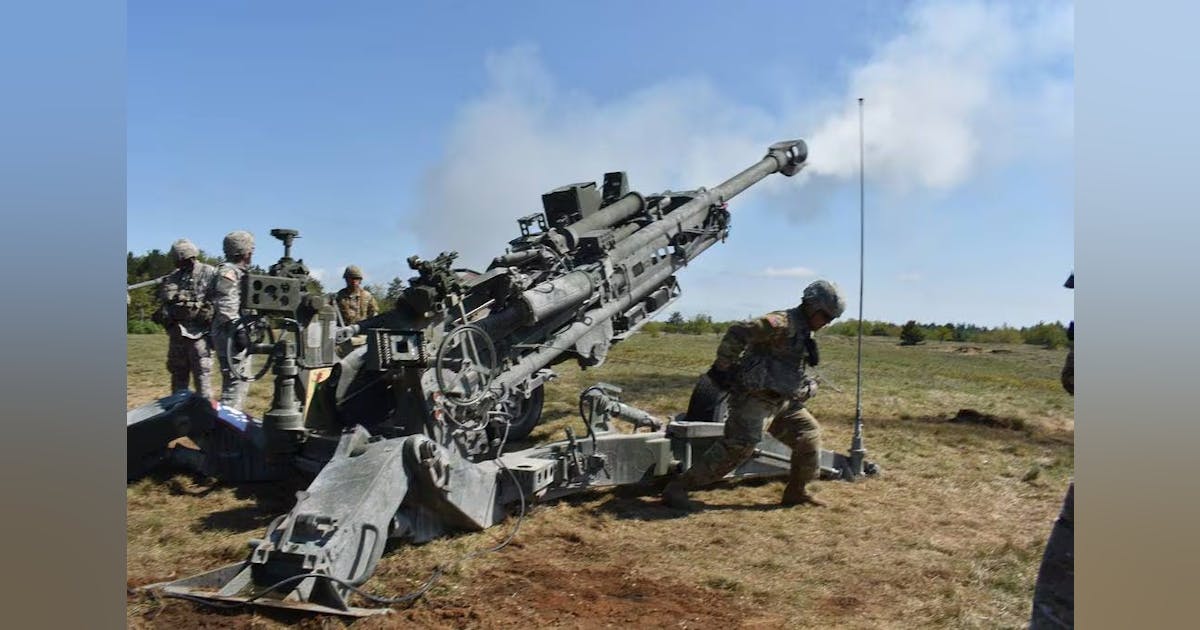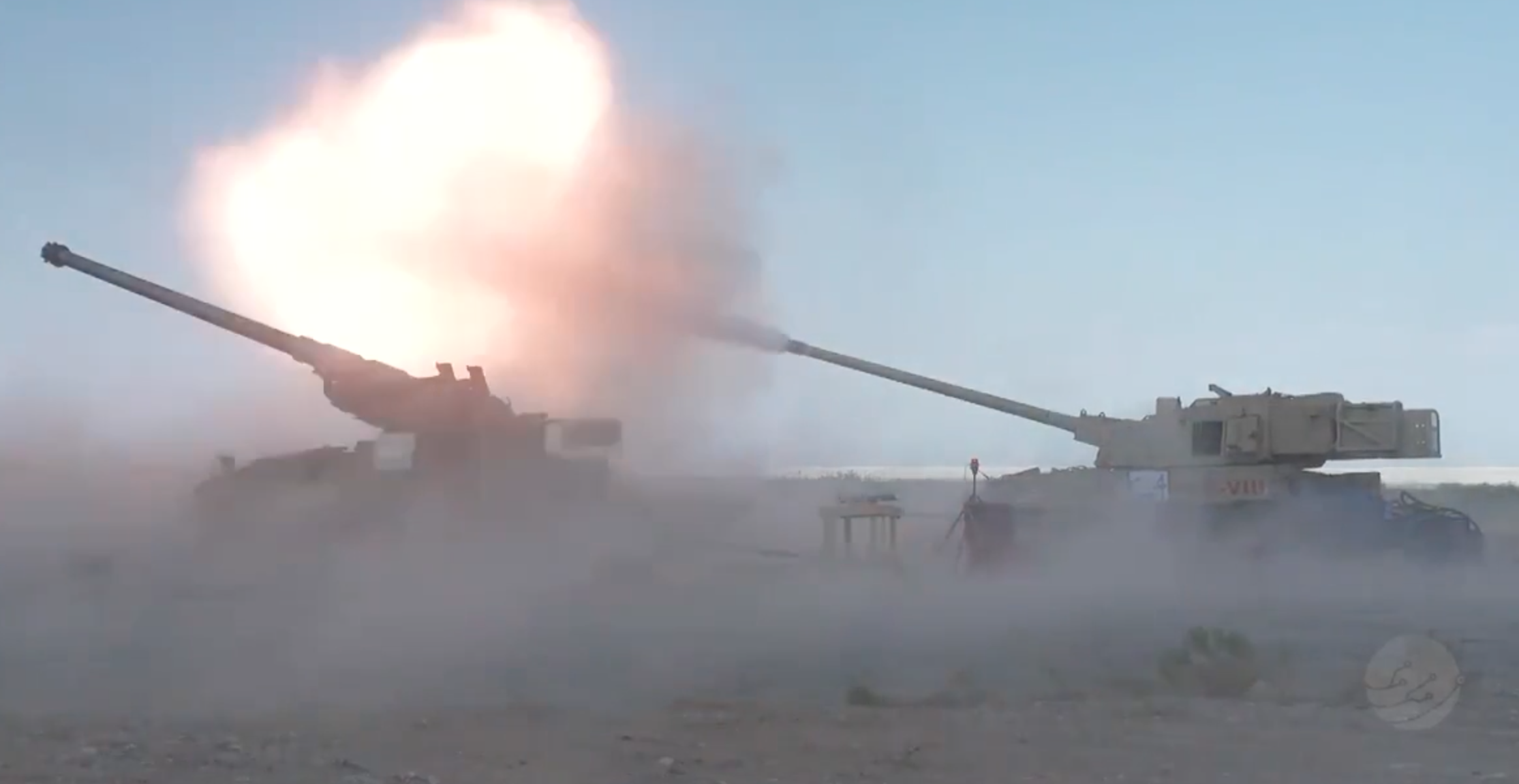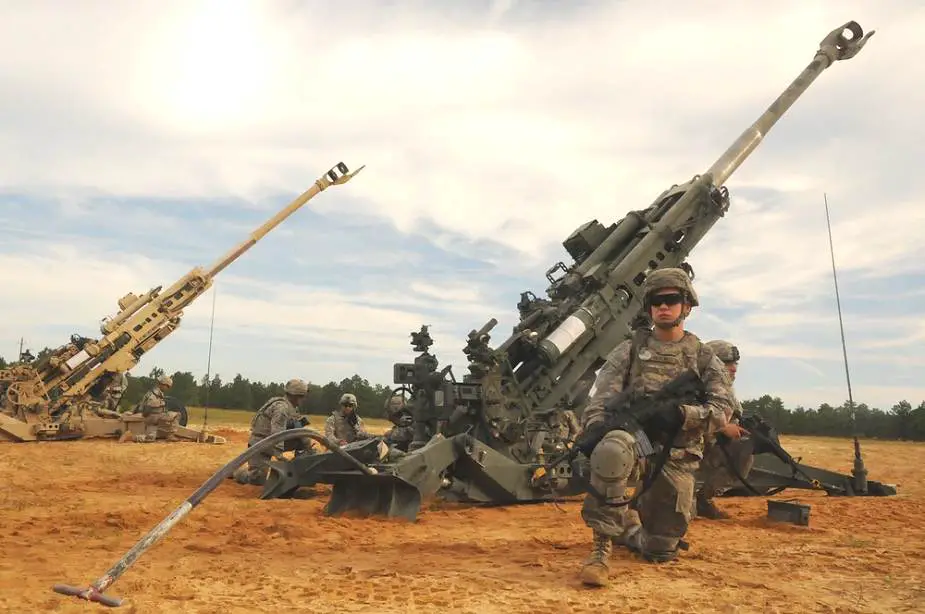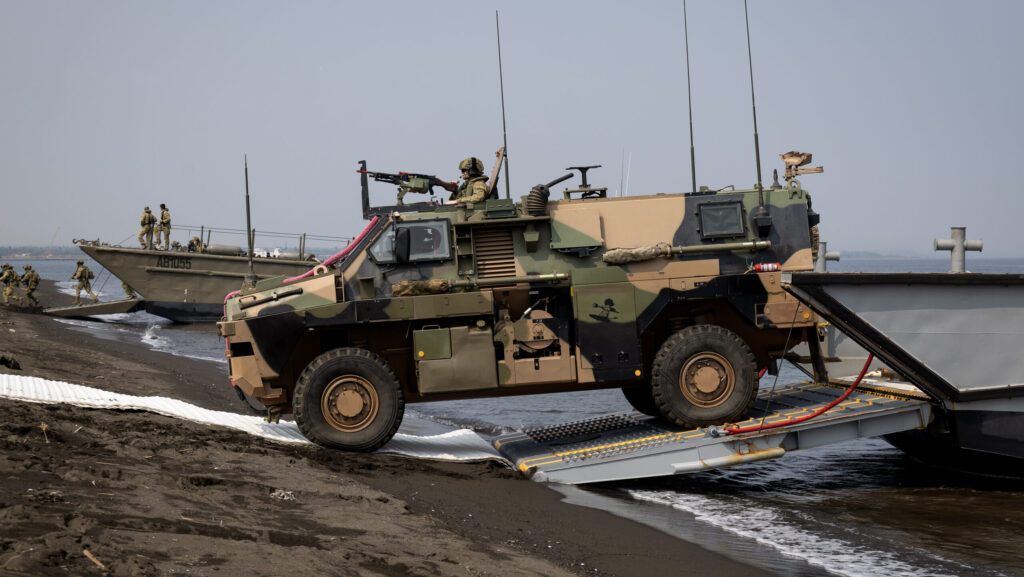Colin Parkinson
Army.ca Myth
- Reaction score
- 13,023
- Points
- 1,160
You need saluting guns for Vancouver and any other large port city.

The concept of their central storage as well as full-time PYs for their maintainers should be part and parcel to any purchase of new guns and retention of the M777s. Like any hybrid organization there should be sufficient full-timers allocated for peace-time service and enough part-timers trained for war-time deployments.
The PY game is a tough one in the CAF but if push comes to shove sufficient peace-time maintainers need to come out of gunner PYs. (there are probably enough CWO and MWO positions doing ERE in Ottawa that could be converted to twice their number in the way of the Pte to MCpl wrench turners needed on the shop floor.
It's not just personnel though. Many of our current serviceability problems arise out of parts supplies for a variety of reasons including IP. That has to be fully corrected.
IMHO the CA has it backwards in many ways, but to me the majority of the Combat units should be ARES, while the majority of support roles being Regular Force.

I'm no arty expert here, but I'm pretty sure you can't use a conventional howitzer strapped to a flatbed as an anti aircraft cannon.I'm sorry (not).
Why would I like to see local Caesars (or some such)?
Because the Caesars plus HVPs plus MRRs present as a viable Air Defence / CUAS / CRAM asset with an 80 km reach to deal with the unexpected.
And it provides a viable conventional artillery solution for launching short range HE in volume, long range Volcano type rounds and any new ramjet and uas type developments.
You could even practice your anti-tank drills.
Perhaps that, and what I imagine is a similar great, gaping hole in the layers of depot/service/maintenance facilities and personnel who once existed, should be looked at with the same priority as revitalizing the artillery world? Seems like a critical piece.The RCAF of today is not the RCAF of the 60s-90s. It is stretched to maintain our current operational commitments, it doesn't have the spare capacity to fly reservists across the country at the CAs whim for their training schedule. It's not impossible to fly people around, but it is expensive and time consuming... Do we expect our ResF folks to spend up to 6-12 paid hours travelling to get less than 16 hours of actual training in a weekend?
Well you can, you just won't hit anythingI'm no arty expert here, but I'm pretty sure you can't use a conventional howitzer strapped to a flatbed as an anti aircraft cannon.

I'm no arty expert here, but I'm pretty sure you can't use a conventional howitzer strapped to a flatbed as an anti aircraft cannon.
The MDAC seeks to slash munition costs and enhance anti-aircraft artillery capability. The system's hypervelocity projectile will communicate with off-board sensors that track the HVP and the incoming threat before shooting the threat down.



When the last operational C3 is declared a saluting gun, the CAF will still be debating what to do about the ARES Artillery with no solution in sight.Oh well, after reading the above, the conclusion I reach is: If there're no will, then there is no way.
Unfortunately.
"Will" is a many layered thing. Within the artillery there is certainly a will but not everyone is reading off the same songbook as to the desired solution. Within the army there is a will too, but it's at a lower level and runs in competition with funding as against other needs the army has. Within the CAF as whole, the will has almost completely disappeared amongst the many competing interests. And at the government level its not so much a question of will but of not really knowing that there is a problem worthy of their attention.Oh well, after reading the above, the conclusion I reach is: If there're no will, then there is no way.
Unfortunately.

Seems like the Army might suffer in comparison to the other two services due to the sheer number of independently sourced, physically distinct systems required to deliver direct and indirect fires, air defence, anti-armour, logistics, engineering, medical, signals, and so on and so on across the Light through Heavy spectrum and in range bands from "stabbing someone" to "HIMARS.""Will" is a many layered thing. Within the artillery there is certainly a will but not everyone is reading off the same songbook as to the desired solution. Within the army there is a will too, but it's at a lower level and runs in competition with funding as against other needs the army has. Within the CAF as whole, the will has almost completely disappeared amongst the many competing interests. And at the government level its not so much a question of will but of not really knowing that there is a problem worthy of their attention.

The M777 is currently an L39 barrel for all variants.PS the M777 has a 52 caliber barrel

M777A2 LW155
M777A2 LW155 Lightweight 155mm towed howitzer United States technical data fact sheet pictures videoarmyrecognition.com
As we are finding out in Ukraine, you only have so much tube life and you have a lot of ground targets that need servicing. If you are using them to service aerial targets, they are not able to service ground targets. I prefer a dedicated gun system for AD, even if it share some common components/ammunition.Me no arty expert either but....
The US Army, Navy and Air Force are all betting big on the ability of the HVP to be able to intercept a variety of targets, including moving aerial ones, after being launched from conventional artillery.
The Hyper Velocity Projectile was developed in association with an experimental Electromagnetic Rail Gun under a US Navy Project.
The project became a joint Army - Navy - Air Forcee project which saw the round launched by a USN 5" gun as well as a US Army 155 mm gun.
The guns were apparently conventional guns. The magic was in the rounds themselves and the accompanying but separate radar.

Army approaches industry for prototype artillery cannon for future Hypervelocity Gun Weapon System (HGWS)
MDAC will be air-, rail-, and sea-transportable per MIL-STD-1366; will move rapidly for survivability; and will have automated high rates of fire.www.militaryaerospace.com

Watch the Air Force use a hypersonic bullet to blast a drone out of the sky
The Defense Department has released footage of a recent test of the U.S. military's vaunted hypervelocity projectile in actiontaskandpurpose.com

Army to test hypervelocity projectile for 155mm cannon artillery
The Army will spend roughly three years studying the physics of shooting the hypervelocity projectile from 155mm cannons.www.defensenews.com
The Archer seems to be the preferred launch system. The published maximum rate of fire for the Archer with its autoloader is 12 rounds in 3 mins.
The Caeasar rate of fire is 6 rounds per minute with semi-automatic assist
The M109A7 max rate of fire is 4 rounds per minute manual loading
The M777 max rate of fire is 4 rounds per minute for 2 minutes
Maybe even the M777 with the HVP would be a suitable Reserve solution seeing as how the Ukrainians are asking for more M777s and BAE is opening new production lines.
BAE Systems receives $50 million to restart M777 production | Shephard
The M777 155mm lightweight howitzer has seen service across five continents and has been heavily used in Ukraine where weapons were donated by Australia, Canada and the US.www.shephardmedia.com
...
As we are finding out in Ukraine, you only have so much tube life and you have a lot of ground targets that need servicing. If you are using them to service aerial targets, they are not able to service ground targets. I prefer a dedicated gun system for AD, even if it share some common components/ammunition.
Buy a dedicated AD platform for that role.Buy more guns then. Just buy more of the same if they are effective in both roles.
88mm.
Buy a dedicated AD platform for that role.
Having a slew of Radar systems etc to support a non ideal role for a Howitzer isn’t an economy of effort.
SYDNEY — The Australian Army will buy 40 more Bushmaster Armored Personnel Vehicles, in a deal valued at over $100 million AUD ($61 million USD).
Thales Australia builds them in a town called Bendigo, where Pat Conroy, minister for defense industry, announced the purchase.
“The Bushmaster vehicles will contribute to the acceleration of a land-based long-range strike capability for the Army, demonstrating a commitment to modernizing the Australian Defence Force,” Conroy said, according to a transcript. “We’re taking and transforming the Australian Army from an army capable of striking 40 kilometers to an army capable of striking 500 and then, eventually 1,000 kilometres away, which is all about deterring aggression in our region.”
Conroy announced today the Australian military will be establishing a second long-range fires regiment and that the new vehicles will be “providing what’s called command and control (C2) for that regiment.”
The new Bushmasters will provide C2 capabilities for the Kongsberg’s Naval Strike Missile (NSM) or Lockheed Martin’s Precision Strike Missile Increment 2 contract, to be awarded by the end of this year. Last July, a $45 million contract was awarded to Thales for 15 Bushmasters to provide C2 for the first long-range fires regiment. The first regiment will be equipped with HIMARS launchers using Guided Multiple Launch Rocket Systems and Precision Strike Missile (PrSM).

